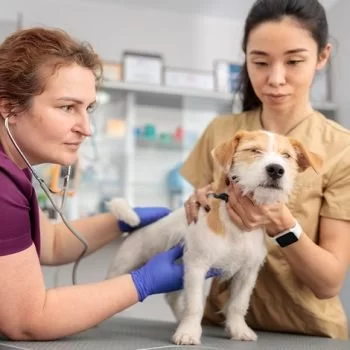What is Pre-Veterinary Studies? A Guide to the Path to Becoming a Veterinarian
- 1. What is Pre-Veterinary Studies?
- 2. Key Components of Pre-Veterinary Studies
- 3. How to Prepare for Pre-Veterinary Studies
- 4. Recommended Schools for Pre-Veterinary Programs
- 5. Career Pathways After Completing Pre-Veterinary Studies
1. What is Pre-Veterinary Studies?
Pre-veterinary studies is a specialized academic track designed for students aiming to pursue a career as a veterinarian. This program provides foundational knowledge in subjects like biology, chemistry, and animal sciences, preparing students for veterinary school. Pre-vet studies are typically offered as part of undergraduate programs at universities, but they can also be pursued through specialized courses. While it's not a specific degree, it ensures students meet the prerequisites for applying to veterinary school and prepares them for the rigorous demands of the veterinary profession.
2. Key Components of Pre-Veterinary Studies
Pre-veterinary studies include a variety of subjects and experiences designed to provide a well-rounded education for aspiring veterinarians. Here are some essential components:
2.1 Core Courses
The pre-vet curriculum usually includes foundational courses in biology, chemistry, physics, and mathematics. These courses are essential for understanding the scientific principles that veterinarians use to diagnose and treat animals.
2.2 Animal Science and Biology
Students will also take specific courses in animal science and zoology, which provide knowledge of animal anatomy, physiology, and behavior. These courses are crucial because veterinarians need to understand the intricacies of various species to care for them effectively.
2.3 Veterinary Experience
Pre-veterinary students are encouraged to gain hands-on experience by working or volunteering at animal clinics, farms, or shelters. This practical experience is vital in demonstrating a student's commitment to the field and understanding the realities of veterinary work.
3. How to Prepare for Pre-Veterinary Studies
Preparing for pre-veterinary studies begins in high school. It's important to focus on science courses, especially biology, chemistry, and physics, as these form the foundation of pre-veterinary education. In addition to strong academic performance, prospective pre-vet students should also focus on developing critical thinking and problem-solving skills.
3.1 Gaining Volunteer Experience
One of the best ways to prepare for a career in veterinary medicine is by volunteering or interning at animal care facilities. Not only does this help gain practical knowledge, but it also gives future veterinarians a better understanding of the daily responsibilities and challenges of animal care.
3.2 Maintaining a Strong GPA
Given the competitive nature of veterinary school admissions, maintaining a strong GPA is essential. Pre-vet students should aim for high marks in science and math courses, as these subjects are heavily emphasized in veterinary school entrance exams.
3.3 Researching Veterinary Schools
It’s also important to research different veterinary schools to understand their specific admission requirements and curriculum. This will help students tailor their pre-vet courses to meet the prerequisites of their target schools.
4. Recommended Schools for Pre-Veterinary Programs
Several top universities offer excellent pre-veterinary programs. Many of these schools have partnerships with veterinary schools and provide students with pathways to direct admission upon completing the pre-vet track. Here are a few institutions known for their strong pre-vet programs:
4.1 Cornell University
Cornell's College of Agriculture and Life Sciences offers one of the most prestigious pre-veterinary programs in the country, preparing students for veterinary school through comprehensive coursework and ample hands-on experience.
4.2 University of California, Davis
UC Davis has a renowned veterinary school and its pre-veterinary program includes opportunities to work with a variety of animals, from livestock to exotic pets. Their curriculum ensures students are ready for the challenges of veterinary school.
4.3 Colorado State University
Colorado State University offers a solid pre-veterinary program that focuses on providing students with a broad understanding of animal health and prepares them for specialized veterinary studies.
5. Career Pathways After Completing Pre-Veterinary Studies
After completing pre-veterinary studies, students can apply to veterinary school, where they will pursue a Doctor of Veterinary Medicine (DVM) degree. The career prospects for veterinarians are diverse, ranging from private practice to roles in research, government agencies, and animal welfare organizations.
5.1 Specializations in Veterinary Medicine
Veterinarians can choose to specialize in areas like oncology, cardiology, or emergency care. Specializing allows veterinarians to focus on specific types of animal care, making them experts in their field.
5.2 Veterinary Research and Academia
For those interested in research, a career in veterinary research or academia offers opportunities to work on groundbreaking medical advancements, including treatments for animal diseases and public health issues.
If you're looking to take the first step towards a rewarding career in veterinary medicine, pre-veterinary studies can help you build the necessary foundation. For more insights and resources on preparing for a career as a veterinarian, check out Elaleph Cruising to learn more.












